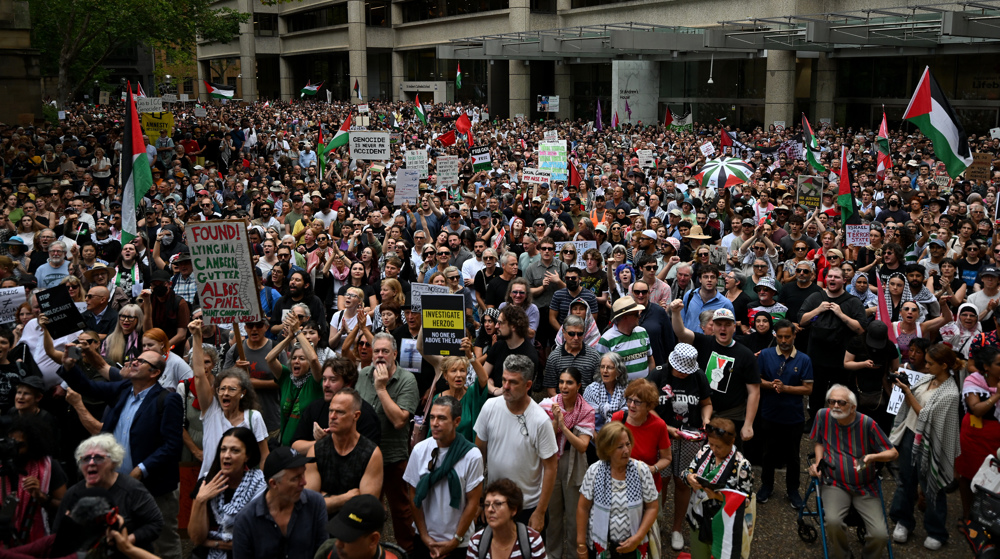Filipinos call for end of Philippine-US military deal
Dozens of angry protesters have taken to the streets in the Filipino capital Manila, calling for an end to a security cooperation agreement with the United States.
On Thursday, a large number of angry demonstrators gathered in front of the US Embassy in Manila to denounce the 2014 Enhanced Defense Cooperation Agreement (EDCA), which allows increased US military presence in the Philippines.
The protesters chanted anti-US slogans and held up placards reading 'US Troops Out Now' and 'No To Another US Military Occupation.' Demonstrators said the accord violates their country’s sovereignty.
The protesters also set fire to a US flag during the massive rally in the capital.
Anti-riot policemen armed with shields and batons were deployed in large numbers to prevent protesters from reaching the US diplomatic mission.
The EDCA is a 2014 agreement between the United States and the Philippines, aimed at strengthening US-Philippine alliance.
In January, the Philippine Supreme Court approved the agreement that would allow the US military to station troops and weapons at bases in the Philippines.

This came more than two decades after lawmakers in Manila voted to expel American soldiers in a show of anti-colonialism.
In 1992, the US terminated its permanent military presence in the Philippines, but the two sides have been holding annual massive war games to this day.
The development comes against the backdrop of escalation of tensions between China and the Philippines over maritime and territorial disputes in recent months. The two countries have conflicting claims over a number of islands and shoals in the South China Sea.
Beijing claims sovereignty over almost the whole of the South China Sea, which is also claimed in part by the Philippines, Brunei, Vietnam, Malaysia, and Taiwan. The waters are believed to sit atop vast reserves of minerals, oil, and gas.
Political observers believe that US's efforts to increase its presence in the region are aimed at containing China.
Beijing has frequently warned Washington to be cautious in its words and actions with regard to territorial disputes involving China and its neighbors.
VIDEO | Pakistan hosts events on 47th anniversary of Iran’s Islamic Revolution
VIDEO | Press TV's news headlines
Report: Epstein account remained active after death, lists Israeli ex-military figure among contacts
VIDEO | Choosing to stay: Palestinian-Americans building life at home
FM questions ‘narrative’ pushed by Israeli-American Trump donor’s outlet ahead of Netanyahu visit
US lawmaker blasts attorney general for ‘lying under oath’ over handling of Epstein probe
Iran received no concrete US proposal in Oman talks: Security chief
Nouri al-Maliki defends Hashd al-Shaabi as inseparable part of Iraqi security system















 This makes it easy to access the Press TV website
This makes it easy to access the Press TV website